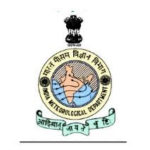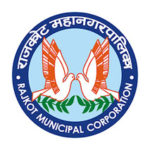Collaborators







- Project Status: Ongoing
- Project Area: Delhi, Bhubaneshwar and Rajkot
- Funder: International Development Research Centre, Canada
Overview:
To manage the mounting heat stress risk in Indian urban centres, Integrated Research for Action and Development (IRADe), the leading South Asian research institute and think tank, is spearheading an inter-disciplinary research study on Climate Adaptive Heat Stress Action Plans, being funded by International Development Research Centre (IDRC) Canada.
The project aims to study the implications of heat stress and extreme heat on the health and livelihoods of vulnerable groups; especially occupational workers, women and senior citizens living in urban slums, as their poverty, dwellings with tin roofs, and poor sanitation make them particularly vulnerable.
HSAP will be a bottom-up adaptation plan based on quantitative and qualitative measures, primary and secondary data, existing adaptation plans and shared learning dialogues (SLD) with stakeholders.
The cities selected for the research work includes Delhi, Bhubaneswar (Odisha), and Rajkot (Gujarat); chosen as the representatives of other cities in India. The study has gathered evidence and developed spatially differentiated adaptation plans and support planning and execution in these cities. Close collaboration with Urban Local Bodies like the Municipal Corporations, Development Authorities, other institutes, local NGOs and local residents will help in developing inclusive HSAPs that are also gender sensitive.
Objective:
-
- Research
- Identify spatial vulnerability of populations during extreme heat events in selected areas.
- Identify the impacts of extreme heat events on the health, work productivity and livelihoods of vulnerable population in selected areas.
- Select appropriate, innovative and affordable climate adaptation measures for improving health and livelihood resilience of the urban population, with consideration of the associated cost effectiveness as well as gender-based implications.
- Training
- Strengthen the capacity of key stakeholders to facilitate the implementation of the Heat Stress Action Plans and their long-term sustainability in the selected areas through training opportunities.
- Dissemination
- Facilitate active use of information and evidence for policy-makers to drive the implementation of the Heat Stress Action Plans into municipal disaster strategies in the selected areas.
- Research
Outputs:
Key research outputs from the project
-
- Synthesis report of existing policies and heat stress adaptation strategies in India (heat stress-vulnerable areas and population identified in target cities)
- Vulnerability maps of heat stress impact
- Technical reports on spatial distribution of human vulnerability to extreme heat events
- Information compendium on heat stress cases and heat-related morbidity and mortality information at the municipal level
- Vulnerability index for each of the selected areas, including the demographic, environmental and health variables
- Case study reports identifying the impact of heat stress on the lives and livelihoods of the vulnerable population
- Development of a comprehensive climate adaptive Heat Stress Action Plan
- Workshop proceedings, Training modules, Virtual platform to bring together various stakeholders
Outcomes:
-
- The outputs of the project helped in arriving at the following outcomes.
- Evidence on heat stress and health risk correlation established by mapping the spatial vulnerability of populations during extreme heat events in selected areas.
- New knowledge on impact of heat stress on health, livelihoods and work productivity of vulnerable populations in selected areas.
- A strategic understanding of various adaptation options, their cost effectiveness and gender implications.
- Empowerment of Local and state government authorities, private and public sector personals to execute improved adaptation plans and strategies to address vulnerabilities arising out of heat stress.
- Aiding Policy-makers to implement heat stress adaptation strategies at the municipal level and to influence the adoption of HSAPs in India across cities